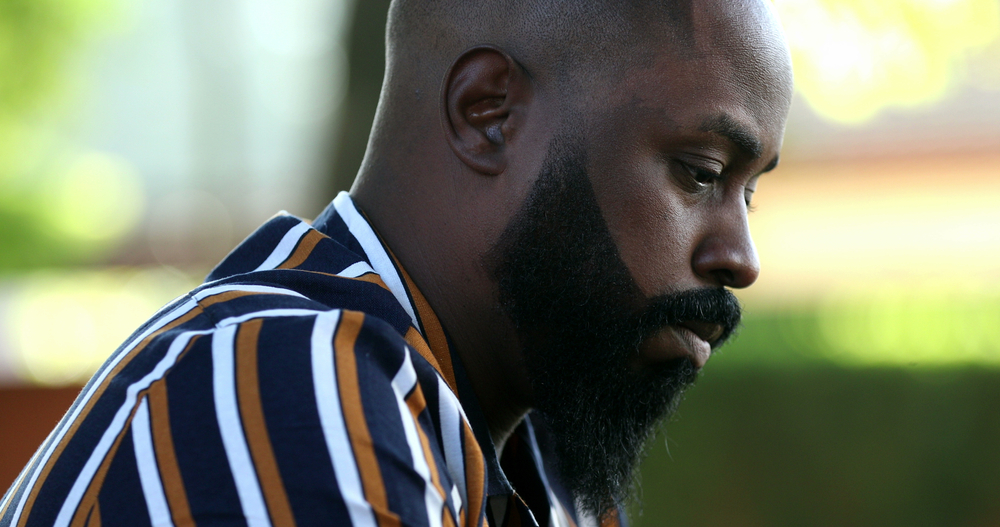13 Things You’re Keeping Out of Guilt That Should Be Let Go
Carrying guilt can weigh heavily on your mind and heart, often causing unnecessary stress and holding you back from living fully. Whether it’s unresolved conflicts, unmet expectations, or past mistakes, guilt can keep you tied to the past, preventing growth and happiness. Letting go of these burdens is key to freeing yourself from emotional weight and moving forward with a sense of peace and self-compassion. By recognizing the source of your guilt and practicing forgiveness, you can create space for healthier habits and a more balanced life.
This post may contain affiliate links, which helps keep this content free. Please read our disclosure for more info.
Unresolved Arguments

Unresolved arguments often weigh heavily on us, especially when we feel guilty about how things ended. It’s common to replay the conversation in our minds, wondering if we could have handled things differently. The guilt stems from the idea that we’ve caused harm or failed to meet expectations. To let go, start by identifying the source of your guilt. Did you say something hurtful? Did you not speak up when you should have? Acknowledging your part can bring clarity.
Once you’ve identified the cause, practice self-compassion. Recognize that everyone makes mistakes and that you are deserving of forgiveness. If possible, reach out to the person involved, apologize, or clear the air. By taking responsibility for your actions, you free yourself from the hold of guilt and can move forward without the burden of unresolved emotions. Letting go is a step toward healing and maintaining your peace.
Unfinished Projects

Unfinished projects often hang over us like a cloud of guilt, making us feel inadequate for not completing them. We might think that finishing these tasks will somehow make us feel better, but the pressure only adds to our stress. To break free from this guilt, start by examining why you did not finish them in the first place. Were the projects not meaningful to you, or were they more about meeting external expectations? Understanding this allows you to see the value in what you accomplished, even if it wasn’t the full completion you envisioned.
Letting go of guilt requires recognizing that it’s okay to stop working on something that no longer serves you. Instead of focusing on the unfinished part, focus on the skills or knowledge you gained during the process. Make peace with the fact that you’ve done enough and that your self-worth isn’t defined by the completion of every task. This shift in perspective helps release the guilt and encourages you to prioritize the things that truly matter to you now.
Obligations You Never Wanted

Holding onto obligations you never wanted often stems from a deep sense of guilt. Whether it’s a favor you promised or a commitment you’ve been holding onto out of fear of disappointing someone, the weight can become overwhelming. It’s easy to feel trapped by these commitments, thinking that by fulfilling them, you are being a good person. However, this mindset doesn’t allow you to live authentically or prioritize your own needs. Recognizing that saying no is a healthy boundary is the first step to releasing this guilt.
To truly let go, it’s essential to practice self-forgiveness. You don’t need to be perfect, and it’s okay to let go of things that no longer align with your values or desires. By setting clear boundaries, you take ownership of your time and energy. Letting go of these unnecessary obligations not only helps you regain control over your life but also frees up space for the things that bring you joy and fulfillment.
Past Mistakes

Many of us carry the weight of past mistakes, believing that holding onto the guilt will somehow help us avoid repeating them. We replay the past in our minds, feeling ashamed or embarrassed, and we let it affect our present. However, holding onto guilt about mistakes doesn’t make us better; it keeps us stuck. The key to letting go is recognizing that mistakes are part of the learning process. They do not define who you are today. Reflect on what you’ve learned from those mistakes and how they’ve shaped your growth.
Forgiving yourself is a powerful step toward healing. Understand that perfection is an unrealistic expectation, and everyone has made mistakes along the way. Embrace the lessons you’ve learned without allowing them to weigh down your present or future. By accepting yourself, flaws and all, you can release the guilt and create space for new opportunities without the burden of past errors.
Toxic Relationships

Holding onto toxic relationships out of guilt can be emotionally draining. You may feel responsible for the other person’s well-being or fear that they will be hurt if you walk away. However, maintaining such relationships often harms your own mental and emotional health. To stop holding on, it’s crucial to identify why you feel guilty. Is it because of past kindness or promises? Once you understand the source of the guilt, recognize that taking care of yourself is equally important.
Letting go of toxic relationships isn’t about abandonment; it’s about creating a healthier dynamic for both parties. Practice self-compassion by acknowledging that it’s okay to distance yourself from those who drain your energy or cause harm. Make amends where you can, but remember that it’s not selfish to prioritize your own well-being. Walking away from toxicity is an act of self-respect and will open up space for healthier, more supportive relationships.
Unrealistic Expectations

We often carry guilt from not meeting unrealistic expectations we set for ourselves. Whether it’s personal goals, career aspirations, or societal pressures, the guilt can be paralyzing when we fall short. The first step in releasing this guilt is to recognize that these expectations were often shaped by external influences rather than your true desires. Take a step back and assess whether these expectations are actually aligned with your values and goals.
Once you identify the root cause, it’s important to practice self-compassion. Understand that you’re only human, and it’s okay to fall short sometimes. Reevaluate your goals and redefine them based on what truly matters to you. By adjusting your expectations, you give yourself permission to succeed on your own terms and let go of the guilt that has been holding you back.
Perfectionism

Perfectionism is a major source of guilt for many people. We believe that we must meet impossible standards to be worthy or successful, and when we fall short, the guilt takes hold. To break free from perfectionism, recognize that striving for excellence is different from expecting perfection. It’s helpful to focus on progress rather than flawless outcomes. Perfectionism often prevents us from taking action at all, so learning to accept that “good enough” is enough can be liberating.
Letting go of perfectionism requires embracing mistakes as part of the journey. Understand that growth happens in the messy, imperfect moments. By reframing your approach to challenges and accepting your limits, you can move forward without guilt. This mindset shift allows you to focus on your strengths and accomplishments without the constant pressure to be perfect.
Unexpressed Emotions

Carrying unexpressed emotions, such as anger, sadness, or fear, can lead to guilt, especially if you feel you’ve bottled them up or kept them hidden. You might worry about how others will perceive your emotions, leading to internal conflict. To release this guilt, begin by acknowledging your emotions without judgment. Accept that all feelings, even the uncomfortable ones, are valid and part of being human.
The next step is to express those emotions healthily. Whether through journaling, talking with a trusted person, or creative outlets, allowing yourself to feel and express emotions will help release the guilt. Bottling up emotions only prolongs the suffering, so by expressing them, you allow yourself to heal. This practice encourages emotional freedom and helps prevent guilt from controlling your well-being.
Financial Burdens

Financial guilt is a common issue for many people, especially when they feel responsible for others or have made poor financial decisions in the past. This guilt can become overwhelming, preventing you from moving forward. To let go of financial guilt, start by evaluating the source of your feelings. Are you feeling guilty for past overspending, or are you taking on financial responsibility for someone else? Once you identify the cause, take small, manageable steps to improve your situation.
Setting realistic financial goals and creating a budget can help you take control of your finances. Be kind to yourself and understand that financial setbacks are common and can be overcome. Instead of carrying guilt, focus on the steps you can take today to improve your financial health. By making informed decisions and practicing self-compassion, you can release the burden of financial guilt and move toward a more secure future.
Past Regrets

Regrets are a natural part of life, but when we hold onto them out of guilt, they can prevent us from living fully. We often think about the “what ifs” and wonder how our lives would be different if we made different choices. The key to letting go of regrets is to accept that you did the best you could with the information you had at the time. Reflect on the lessons learned rather than focusing on what went wrong.
Forgiving yourself for past choices is an essential part of letting go of regret. Recognize that you are not defined by the mistakes you made in the past. Moving forward involves embracing the lessons learned and using them to make better decisions today. By releasing the guilt of past regrets, you free yourself to live more fully in the present.
Unmet Expectations from Others

We often carry the weight of unmet expectations from others, feeling guilty for not living up to their standards. This guilt can cause us to overcompensate or try to meet demands that are not realistic or healthy. Letting go of this guilt starts with setting boundaries and understanding that we cannot control others’ expectations. Recognize that their expectations are their own and may not reflect your reality or capacity.
To release this guilt, practice self-compassion and remind yourself that you are worthy regardless of meeting external demands. By communicating your boundaries and focusing on your own goals, you can let go of the pressure to meet everyone else’s expectations. It’s essential to take ownership of your life and not let others’ judgments dictate your self-worth.
Unhealthy Habits

Holding onto guilt about unhealthy habits, like overeating, smoking, or procrastination, can prevent us from making progress toward healthier choices. We often judge ourselves harshly for our actions, which only reinforces the cycle of guilt. The first step in letting go is to forgive yourself and accept that habits take time to change. Focus on the small improvements you’ve made and build on them.
By practicing self-compassion, you can shift your mindset from guilt to growth. Recognize that breaking unhealthy habits is a journey and that it’s okay to stumble along the way. Celebrate the progress you’ve made, and remember that each day is an opportunity to make better choices. Let go of guilt and use it as motivation to continue improving your well-being.
Unresolved Grief

Grief can create immense guilt, especially when we feel we have not mourned or let go of a loved one in the “right” way. The process of grieving is unique for everyone, and there’s no set timeline for how long it should take. To release guilt surrounding grief, it’s essential to acknowledge your feelings without judgment. Understand that your grief is valid, no matter how it looks or how long it lasts.
Self-compassion is key in this process. Allow yourself to grieve in your own way and on your own timeline. By expressing your grief and remembering the love and connection you shared with the person, you can heal and release the guilt that holds you back. It’s a process, and there’s no rush to “get over it,” but rather, to embrace healing on your terms.
This article originally appeared on Avocadu.
